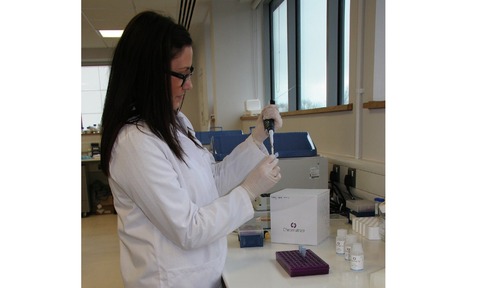
Chromatrap has published an application note that describes how its ChIP-seq assays now enable unbiased, genome-wide understanding of protein-DNA regulatory networks.
Genome-wide mapping of protein-DNA interactions is essential for a complete understanding of gene regulation.
A detailed map of epigenetic marks and transcription factor binding is necessary for deducing the regulatory networks that underpin gene expression in a variety of biological systems.
The most widely used tool for examining these interactions is ChIP followed by massively parallel sequencing (ChIP-seq).
The application note reports on how the Chromatrap ChIP-seq kit, when used with Illumina ChIP-seq library preparation kits and sequencing platforms, is able to deliver high-quality DNA for sequencing.
Due to Chromatrap’s solid-phase matrix and the option of a 96 well plate for assays, sample throughput and reproducibility is increased owing to smaller sample volumes, centrifugal wash-steps and a matrix that does not require blocking.
Compatible with direct, deep sequencing of enriched fragments, Chromatrap ChIP-seq assays enable unbiased, genome-wide understanding of protein-DNA regulatory networks.
The inert solid-support matrix enables reproducible capture and genome-wide amplification of landmark regulatory complexes from low amounts of input chromatin.
The results demonstrate how Chromatrap ChIP-seq can be used to further understand the genome wide binding patterns of estrogen receptor in the human endometrium; demonstrating the utility of fast, multiplex analysis by massively parallel next-generation sequencing.





